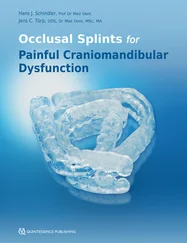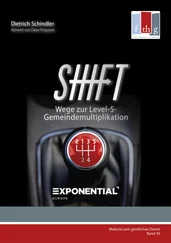In barracks like those of the Schindler women, it was like living outdoors. The windows had no glass and served only to put an edge on the blasts of cold air out of Russia. Most of the girls had dysentery. Crippled with cramp, they limped in their clogs to the steel waste drum out in the mud. The woman who tended it did so for an extra bowl of soup. Mila Pfefferberg staggered out one evening, seized with dysentery, and the woman on duty—not a bad woman, a woman Mila had known as a girl—insisted that she could not use the drum but had to wait for the next girl out and then empty it with her help. Mila argued but could not shake the woman. Beneath the hungry stars this tending of the drum had become something like a profession, and there were rules. With the drum as pretext, the woman had come to believe that order, hygiene, sanity were possible.
The next girl out arrived at Mila’s side, gasping and bent and desperate. But she too was young and, in peaceful days in Łódź, had known the woman on the can as a respectable married woman. So the two girls were obedient and lugged the thing 300 meters through the mud. The girl who shared the burden asked Mila, “Where’s Schindler now?”
Not everyone in the barracks asked that question, or asked it in that fierce, ironic way. There was an Emalia girl named Lusia, a widow of twenty-two, who kept saying, “You’ll see, it will all come out. We’ll end up somewhere warm with Schindler’s soup in us.” She did not know herself why she kept repeating such statements. In Emalia she had never been the type to make projections. She’d worked her shift, drunk her soup, and slept. She had never predicted grandiose events. Sufficient to her day had always been the survival thereof. Now she was ill and there was no reason for her to be prophetic. The cold and hunger were wasting her, and she too bore the vast obsessions of her hunger. Yet she amazed herself by repeating Oskar’s promises.
Later in their stay in Auschwitz, when they had been moved to a hut closer to the crematoria and did not know if they were to go to the showers or the chambers, Lusia continued pushing the glad message. Even so, the tide of the camp having washed them to this geographic limit of the earth, this pole, this pit, despair wasn’t quite the fashion for the Schindlerfrauen. You would still find women huddled in recipe talk and dreams of prewar kitchens.
In Brinnlitz when the men arrived, there was only the shell. There were no bunks yet; straw was strewn in the dormitories upstairs. But it was warm, with steam heat from the boilers. There were no cooks that first day. Bags of turnips lay around what would be the cookhouse, and men devoured them raw. Later, soup was brewed and bread baked, and the engineer Finder began the allocating of jobs. But from the start, unless there were SS men looking on, it was all slow. It is mysterious how a body of prisoners could sense that the Herr Direktor was no longer a party to any war effort. The pace of work grew very canny in Brinnlitz. Since Oskar was detached from the question of production, slow work became the prisoners’ vengeance, their declaration.
It was a heady thing to withhold your labor. Everywhere else in Europe, the slaves worked to the limit of their 600 calories per day, hoping to impress some foreman and delay the transfer to the death camp. But here in Brinnlitz was the intoxicating freedom to use the shovel at half-pace and still survive.
None of this unconscious policy-making was evident in the first days. There were still too many prisoners anxious for their women. Dolek Horowitz had a wife and daughter in Auschwitz. The Rosner brothers had their wives. Pfefferberg knew the shock which something as vast, as appalling as Auschwitz would have on Mila. Jacob Sternberg and his teen-age son were concerned about Mrs. Clara Sternberg. Pfefferberg remembers the men clustering around Schindler on the factory floor and asking him again where the women were.
“I’m getting them out,” Schindler rumbled.
He did not go into explanations. He did not publicly surmise that the SS in Auschwitz might need to be bribed. He did not say that he had sent the list of women to Colonel Erich Lange, or that he and Lange both intended to get them to Brinnlitz according to the list.
Nothing of that. Simply “I’m getting them out.” The SS garrison who moved into Brinnlitz in those days gave Oskar some cause to hope. They were middle-aged reservists called up to allow younger SS men a place in the front line. There were not so many lunatics as at Płaszów, and Oskar would always keep them gentle with the specialties of his kitchen—plain food, but plenty. In a visit to their barracks, he made his usual speech about the unique skills of his prisoners, the importance of his manufacturing activities. Antitank shells, he said, and casings for a projectile still on the secret list. He asked that there be no intrusion by the garrison into the factory itself, for that would disturb the workers.
He could see it in their eyes. It suited them, this quiet town. They could imagine themselves lasting out the cataclysm here. They did not want to rampage round the workshops like a Goeth or a Hujar. They didn’t want the Herr Direktor to complain about them.
Their commanding officer, however, had not yet arrived. He was on his way from his previous post, the labor camp at Budzyn, which had, until the recent Russian advances, manufactured Heinkel bomber parts. He would be younger, sharper, more intrusive, Oskar knew. He might not readily take to being denied access to the camp. Among all this pouring of cement floors, the knocking of holes in the roof so that the vast Hilos would fit, the softening of NCO’S, amid the private uneasiness of settling into married life with Emilie again, Oskar was arrested a third time.
The Gestapo turned up at lunchtime. Oskar was not in his office, in fact had driven to Brno on some business earlier in the morning. A truck had just arrived at the camp from Cracow laden with some of the Herr Direktor’s portable wealth—cigarettes, cases of vodka, cognac, champagne. Some would later claim that this was Goeth’s property, that Oskar had agreed to bring it into Moravia in return for Goeth’s backing of his Brinnlitz plans. Since Goeth had now been a prisoner for a month and had no more authority, the luxuries on the truck could just as well be considered Oskar’s.
The men doing the unloading thought so and became nervous at the sight of the Gestapo men in the courtyard. They had mechanics’ privileges and so were permitted to drive the truck to a stream down the hill, where they threw the liquor into the water by the caseful. The two hundred thousand cigarettes on the truck were hidden more retrievably under the cover of the large transformer in the power plant.
It is significant that there were so many cigarettes and so much liquor in the truck: a sign that Oskar, always keen on trade goods, intended now to make his living on the black market.
They got the truck back to the garage as the siren for midday soup was blown. In past days the Herr Direktor had eaten with the prisoners, and the mechanics hoped that today he would do so again; they could then explain what had happened to such an expensive truckload.
He did in fact return from Brno soon after, but was stopped at the inner gate by one of the Gestapo men who stood there with his hand raised. The Gestapo man ordered him to leave his car at once.
“This is my factory,” a prisoner heard Oskar growl back. “If you want to talk to me, you’re welcome to jump in the car. Otherwise follow me to my office.”
He drove into the courtyard, the two Gestapo men walking quickly on either side of the vehicle. In his office, they asked him about his connections with Goeth, with Goeth’s loot. I do have a few suitcases here, he told them. They belong to Herr Goeth. He asked me to keep them for him until his release.
Читать дальше












